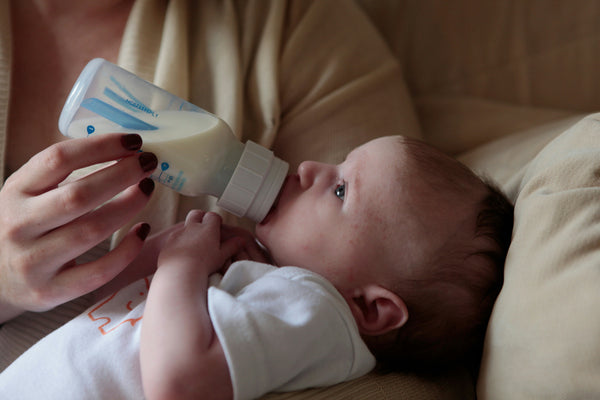The Possible Dangers of Laxative Overuse in Kids: What Every Parent Needs to Know
share this article

Constipation is a common issue among kids, leading parents to seek solutions to alleviate discomfort and promote regular bowel movements. While laxatives can provide short-term relief, overuse can have detrimental effects on a little one's health. This blog reviews the health consequences of laxative overuse in kids.
What is Laxative Overuse?
Laxatives are substances that promote bowel movements and are often used to relieve constipation. However, excessive and prolonged use of laxatives can disrupt the natural digestive process and lead to dependency, where the body relies on laxatives to produce a bowel movement.
Daily reads to help your little ones lead happier and healthier lives.
Join the
Happy Gut Club
Possible Health Effects of Laxative Overuse
Dehydration
Many laxatives work by drawing water into the intestines to soften the stool. Prolonged use can lead to dehydration, especially in little ones who may not recognize or communicate thirst effectively. According to a study published in Pediatrics, dehydration is a common side effect of laxative overuse in kids and can lead to electrolyte imbalances and other complications [1].
Electrolyte Imbalances
Laxatives can cause the loss of essential electrolytes such as potassium, sodium, and magnesium. These electrolytes play vital roles in nerve function, muscle contraction, and hydration.
Research in the Journal of Pediatric Gastroenterology and Nutrition indicates that electrolyte imbalances resulting from laxative overuse can lead to weakness, fatigue, and irregular heart rhythms in kids [2].
Gastrointestinal Issues
Long-term laxative use can damage the gastrointestinal tract and disrupt its natural function. Chronic diarrhea, abdominal pain, bloating, and nausea are common gastrointestinal side effects associated with laxative overuse.
Studies highlighted the risk of gastrointestinal complications in individuals who misuse laxatives, including inflammation of the colon and impaired bowel function [3].
Dependency and Tolerance
Over time, the body can become tolerant to the effects of laxatives, requiring higher doses to produce the desired result. This can lead to a cycle of dependency, where the little one relies on laxatives to produce bowel movements.
Research in suggests that laxative dependency can develop rapidly, especially in young individuals who misuse these medications [4].
Nutritional Deficiencies
Laxatives can interfere with the absorption of nutrients in the intestines, leading to deficiencies in vitamins and minerals essential for growth and development.
A study in JAMA Pediatrics found that kids who misuse laxatives are at an increased risk of nutritional deficiencies, including iron, calcium, and vitamin D [3].
Preventing Laxative Overuse in Kids
Preventing laxative overuse in kiddos is essential for maintaining their overall health and well-being. Parents can take several steps to promote healthy bowel habits without relying solely on laxatives:
- Encourage a balanced diet rich in fiber, fruits, vegetables, and whole grains.
- Ensure adequate hydration by encouraging kids to drink plenty of water throughout the day.
- Promote regular physical activity to support digestive health and bowel regularity.
- Seek medical advice if constipation persists or if there are concerns about a little one's bowel habits.
Summary
Laxative overuse in kids can lead to dehydration, electrolyte imbalances, gastrointestinal issues, dependency, tolerance, and nutritional deficiencies. By promoting healthy bowel habits through diet, hydration, and lifestyle changes, parents can help prevent or limit the need for excessive laxative use.
















